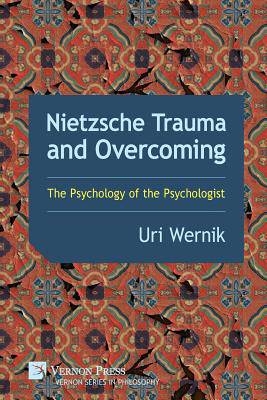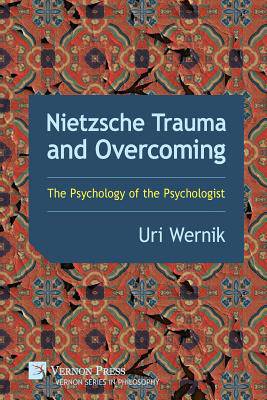
- Retrait gratuit dans votre magasin Club
- 7.000.000 titres dans notre catalogue
- Payer en toute sécurité
- Toujours un magasin près de chez vous
- Retrait gratuit dans votre magasin Club
- 7.000.000 titres dans notre catalogue
- Payer en toute sécurité
- Toujours un magasin près de chez vous
Description
"Nietzsche Trauma and Overcoming " shows that Nietzsche suffered from Post-Traumatic Stress Disorder, and most probably was a victim of childhood sex abuse. I bring convincing evidence from his texts to support these claims, along with a discussion of corroborating psychological findings on these issues. I show that he teaches coping with pain and suffering, based on his life experience, with lessons from the school of war, the wisdom of reinterpretation, and artistic activity. His three themes of the Superman, Eternal Recurrence, and the Will to Power, the heart of his philosophy and psychology, are understood in a new light, in relation to his personal suffering and overcoming.
The book criticizes the attempts to diagnose Nietzsche as suffering from various psychiatric disorders, psychoanalyze him as a fatherless child grown old, and outing him as a closet homosexual. These approaches lead to a dead-end. Firstly, it is impossible to prove that someone is a paragon of mental health, not a covert homosexual, and unmoved by a parent's death. Secondly, these speculations explain only a small part of Nietzsche's personal statements, found in his writings. Thirdly, and most importantly, they do not change our understanding of his ideas and how they were arrived at; they do not increase our appreciation of him; and do not leave us with any lessons for life (the goal of any good writing according to Nietzsche).
Spécifications
Parties prenantes
- Auteur(s) :
- Editeur:
Contenu
- Nombre de pages :
- 180
- Langue:
- Anglais
- Collection :
Caractéristiques
- EAN:
- 9781622733354
- Date de parution :
- 16-05-18
- Format:
- Livre broché
- Format numérique:
- Trade paperback (VS)
- Dimensions :
- 152 mm x 229 mm
- Poids :
- 249 g







